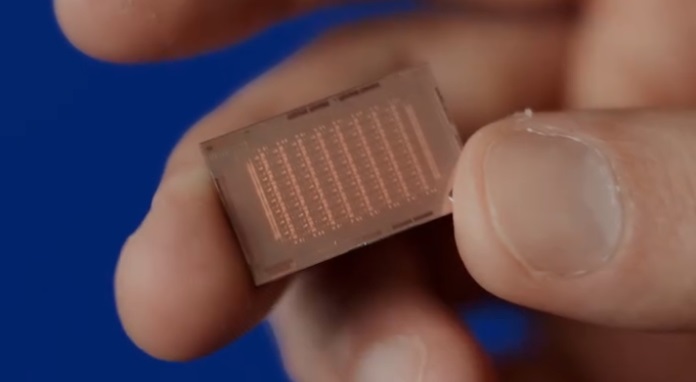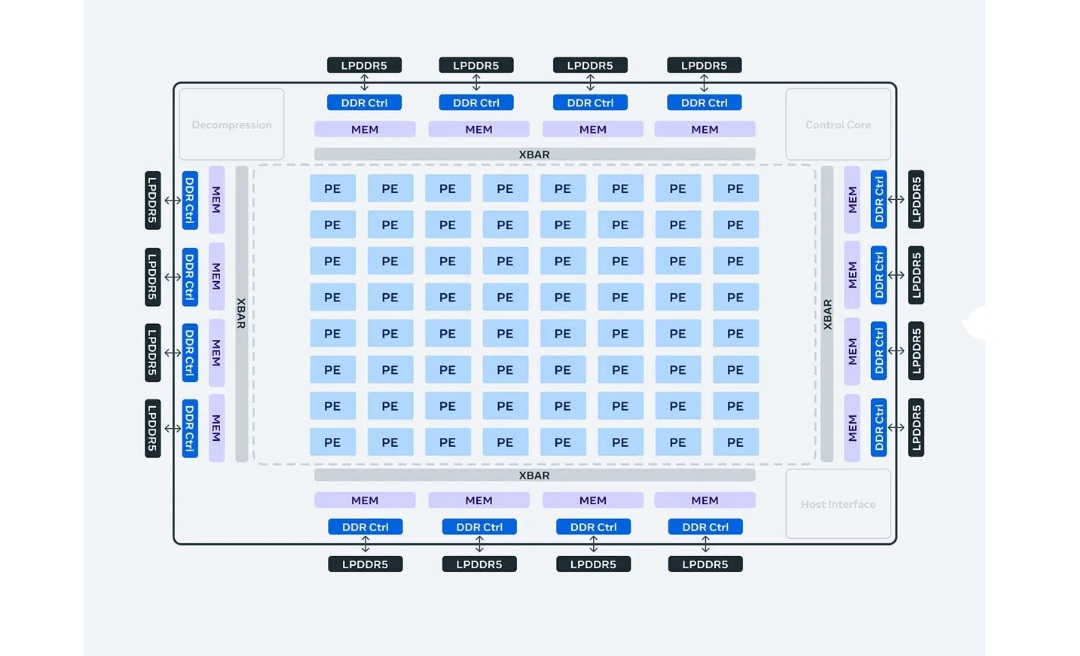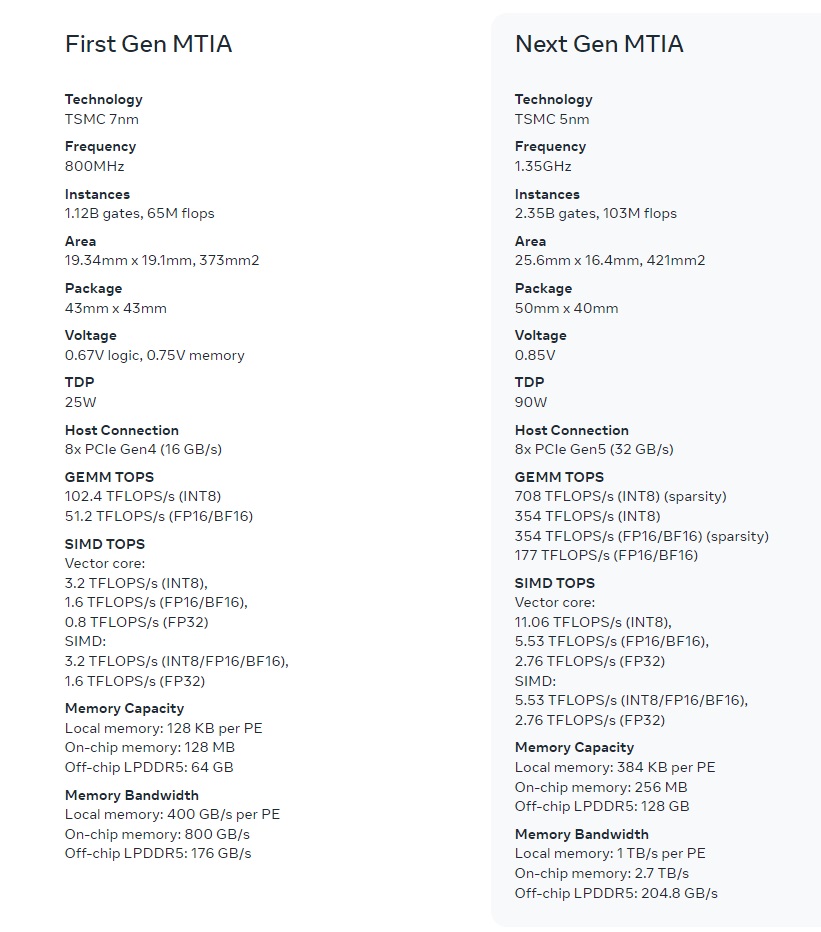Meta is challenging Nvidia with their next-gen MTIA AI chips
New AI chips from META are entering production this year, reducing the company’s reliance on Nvidia
Like every major tech company, Meta is investing heavily in AI. That means that the company has been spending a lot of money on AI chips from companies like Nvidia. Now, Meta are fighting back against Nvidia’s AI dominance with home-grown AI solutions. This year, Meta will be putting their second generation AI chips into production.
With these new AI chips, Meta plans to save hundreds of thousands in purchasing costs. With efficient hardware and software, Meta also has the potential to save a lot of money in energy costs. Meta believes that they can do better than Nvidia for less, as they can design chips that are specific to their workloads.
Meta’s “Meta Training and Inference Accelerator” (MTIA) chips are custom-designed for their own AI workloads. Their new MTLA v2 chip will be made using TSMC 5nm silicon, and boasts huge performance gains over its predecessor. Meta claims an increased dense compute performance of 3.5x over their v1 MTIA chips, and a 7x boost in sparse compute performance. Meta expects further performance boosts with future MTIA generations.
MTIA is a long-term venture to provide the most efficient architecture for Meta’s unique workloads. As AI workloads become increasingly important to our products and services, this efficiency will improve our ability to provide the best experiences for our users around the world. MTIA v1 was an important step in improving the compute efficiency of our infrastructure and better supporting our software developers as they build AI models that will facilitate new and better user experiences.
Now, we’re sharing details about the next generation of MTIA.
With more transistors, more power, and more memory, META’s v2 MTIA chips is many times faster than its predecessor. With PCIe 5.0 support, META has been able to increase the bandwidth and scalability of their MTIA systems. This allows META’s MTIA-powered systems to handle larger, more complex workloads.
Below you can see the specifications of META’s v1 and v2 MTIA chips. META has achieved huge performance gains with their newest chips, despite a small increase in silicon area.
These AI chips from Meta will not harm Nvidia’s market position
With their MTIA AI chips, META’s aims are to lower the costs of their AI rollout and make their company less reliant on Nvidia. With their own AI solutions, META will be more self-reliant. That said, META’s chips will not reduce Nvidia’s dominance within the AI market. After all, META’s AI chips are designed for META’s AI workloads. META doesn’t plan to sell these chips to 3rd parties, and that means that META isn’t a competitor to Nvidia in this area of the chipmaking market.
At worst, Nvidia has lost orders from a large potential customer. That said, Meta’s v2 MTIA chips do not harm Nvidia’s overall market position. As such, Nvidia should not be worried by this development.
You can join the discussion on META’s new MTIA AI accelerators on the OC3D Forums.






